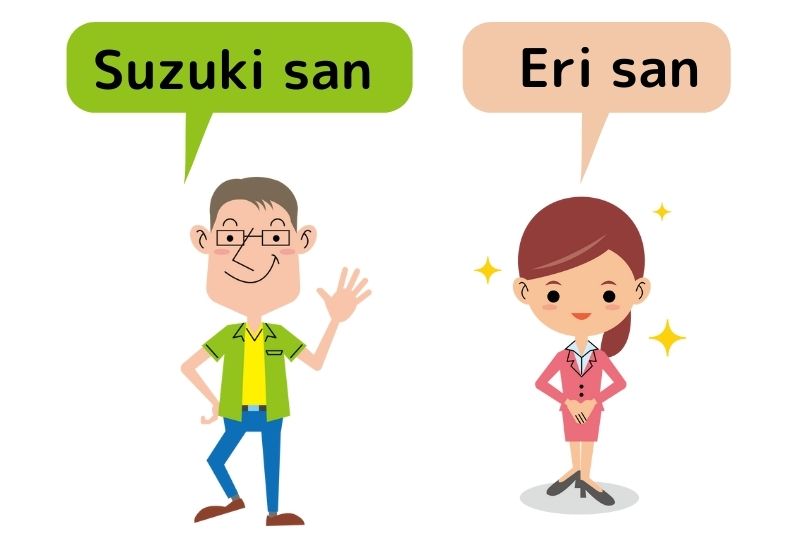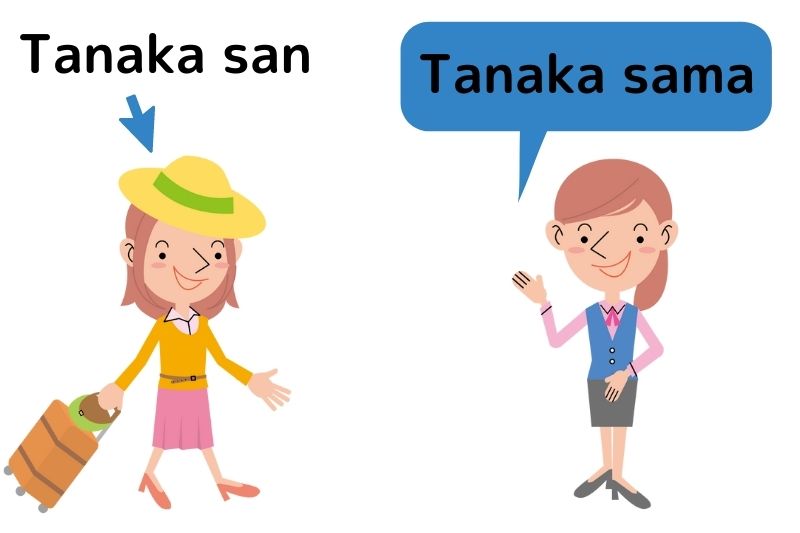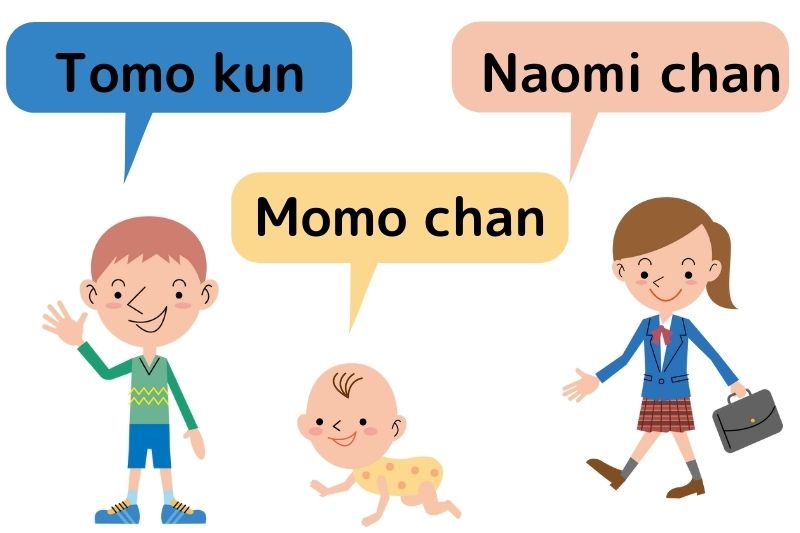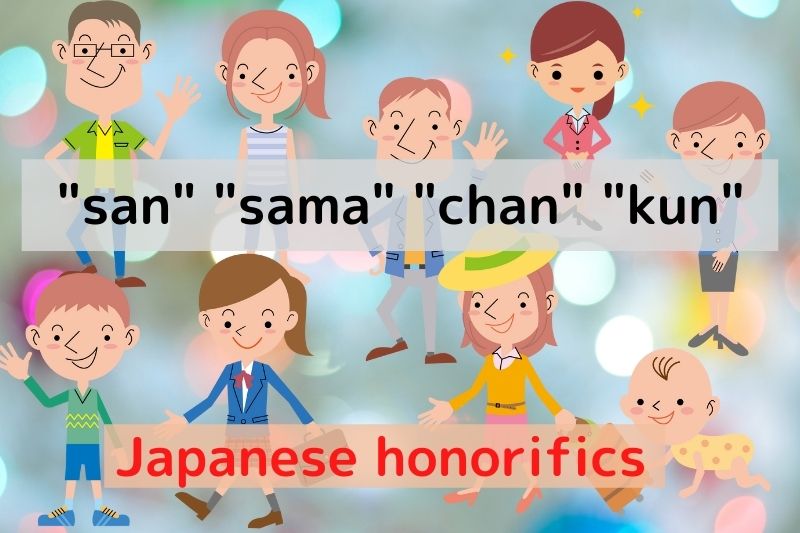In Japanese, when you call someone, several honorifics are used, depending on the person’s age, gender, social role and status. In most cases, the honorific is determined by the relationship between the caller and the listener. This article provides an overview of Japanese honorifics.
san

The most common honorific in Japanese is “san”. San” is the equivalent of the English honorific “Mr.” or “Ms.”. It shows respect and friendliness.
“San” can be used regardless of gender or whether you are single or married. In formal situations, it is common to add “san” to the surname, as in “Suzuki san“.
If the caller and the listener are relatively close, the first name may be followed by “san”, as in “Ichiro-san“.
sama

“Sama” is also an honorific title like “Mr.” or “Ms.” in English, but “sama” is more polite than “san”.
In stores, restaurants, hotels, etc., use “sama” for customers.
Also, on the front of envelopes and e-mails, “sama” is written in addition to the name. In business emails, it is common to add “sama” to the recipient’s name.
chan, kun

Chan” and “kun” are mainly used for children. Basically, “chan” is used for girls and “kun” is used for boys.
Children
Parents usually call their children as “-chan” or call them by their names without honorifics. Among family members, “chan” can be used regardless of age or gender.
Friends
Chan” and “kun” are also widely used among friends especially in younger generations.
In Japanese society, age is an important factor in deciding what to call someone. For this reason, “chan” and “kun” are used among people of the same age group to express friendliness and equality.
When the age groups of the person calling and the person listening are different, older people are often called “-san” and younger people are tend to be called “-chan”.
“San” can also indicate psychological distance. When people of the same age group call each other by their surnames with “-san,” it may indicate that they are not close.
Zero honorific

Zero honorifics indicate a lack of respect for the listener. However, depending on the relationship between the caller and the listener, “zero honorifics” can be the best way to be friendly. For example, if a friend calls you by your first name with zero honorifics, it can indicate that you have been chosen as the caller’s best friend. Similarly, lovers may call each other by their first names without honorifics to show their intimacy.
How do you like this article? Finally…
If you’d like to learn more about Japanese or more communicate with Japanese teachers, you can find teachers and book lessons here. Let’s learn Japanese together. Find teachers

